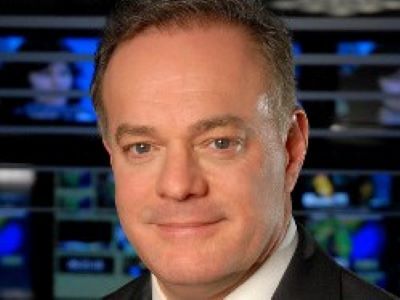UNESCO is choosing a new director who will face a big funding shortage after US exit
News > Top Stories

Audio By Carbonatix
10:07 PM on Sunday, October 5
The Associated Press
PARIS (AP) — An Egyptian antiquities professor and ex-tourism minister is facing off against a Congolese economist who promoted schooling in refugee camps in a race to become the new director of UNESCO.
Whoever wins will inherit a world body reeling from the Trump administration’s recent decision to pull the United States out of UNESCO, portending a big budget shortfall at the agency best known for its World Heritage sites around the globe.
UNESCO’s executive board begins voting Monday to recommend either Khaled el-Enany or Firmin Édouard Matoko for the position of director-general. The decision by the board, which represents 58 of the agency’s 194 member states, is expected to be finalized by UNESCO’s general assembly next month.
In addition to choosing and protecting World Heritage sites and traditions, the Paris-based United Nations Educational, Scientific and Cultural Organization works to ensure education for girls, promotes Holocaust awareness and funds scientific research in developing countries, among other activities. Outgoing UNESCO chief Audrey Azoulay notably led a high-profile effort to rebuild the ancient Iraqi city of Mosul after it was devastated under the Islamic State group.
UNESCO has also long been plagued by accusations of mismanagement and waste.
Trump argues that the agency, which voted in 2011 to admit Palestine as a member, is too politicized and anti-Israel. U.S. supporters of UNESCO, meanwhile, say withdrawing Washington’s support allows China to play an outsized role in the world body.
Meanwhile the vote comes at a time when the whole 80-year-old U.N. system is facing financial challenges and deepening divisions over the wars in Gaza and Ukraine.
El-Enany worked as a tour guide through ancient Egyptian sites, earned a doctorate in France and served as Egypt’s tourism minister and antiquities minister.
Arab countries have long wanted to lead UNESCO, and el-Enany is seen as having a good chance of making that happen. The African Union and Arab League are among those that have expressed support for his bid.
He would be expected to focus on UNESCO’s cultural programs if chosen, and has pledged to continue UNESCO’s work to fight antisemitism and religious intolerance. Israel left UNESCO at the end of 2018.
While he has no U.N. experience, his backers say that could help him make tough reform decisions.
Republic of Congo’s candidate Firmin Matoko, 69, spent most of his career working for UNESCO, including stints in Rwanda soon after the genocide, during peace negotiations in El Salvador and beyond.
He says he wants UNESCO to move away from political tensions and focus on technical solutions. He described helping train teachers at a refugee camp in Somalia in the 1990s, and meeting one of them years later after she became education minister. That, he says, is one reason UNESCO matters.
He says he is ready to cut jobs or programs if needed, and pledges “budgetary rigor.”
Like el-Enany, he wants to tap more private sector money to make up for the loss of U.S. and other funding, notably from BRICS countries.
At the same time, he said, “I will do everything so that the United States comes back, while taking into account what they reproach UNESCO for.”







